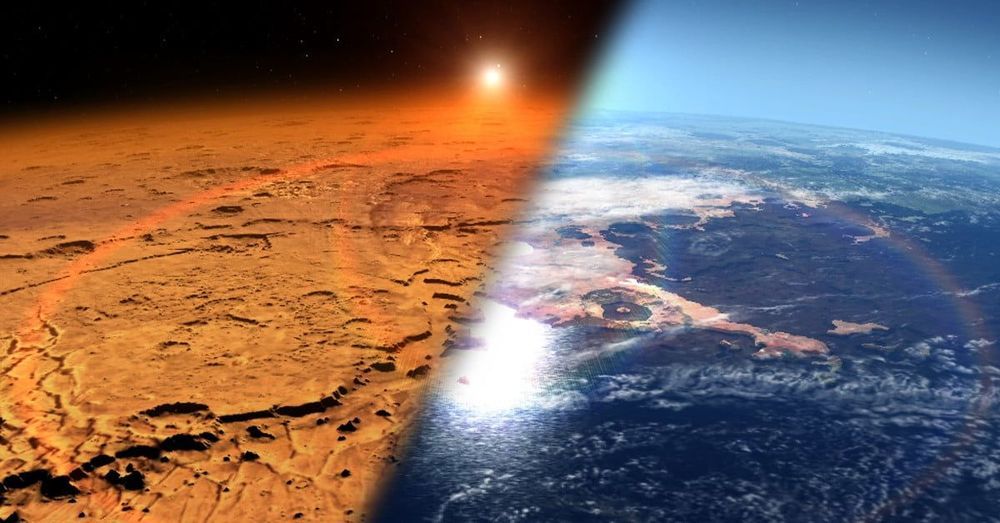Billions of years ago, Mars could have been a planet very like Earth with copious liquid water on its surface. But over time, that water rose into Mars’s thin atmosphere and evaporated off into space. There are only very small amounts of water vapor left in the atmosphere today, and a new study shows that vapor is being lost even faster than previously believed.
The research, published in the journal Science, used data from the Trace Gas Orbiter in orbit around Mars to see how water moved up and down through the layers of the Martian atmosphere in order to understand how fast it evaporates away. They found that the vapor changes through the seasons and that in the warmer months the atmosphere hosts a whole lot more water than expected, in a state called “supersaturation.”
When the atmosphere becomes supersaturated, this makes the evaporation of water happen even faster. “Unconstrained by saturation, the water vapor globally penetrates through the cloud level, regardless of the dust distribution, facilitating the loss of water to space,” the authors explain. Even when the density of dust or ice particles in the atmosphere changes, that still doesn’t stop supersaturation, so the evaporation of water continues at a brisk pace.









Comments are closed.